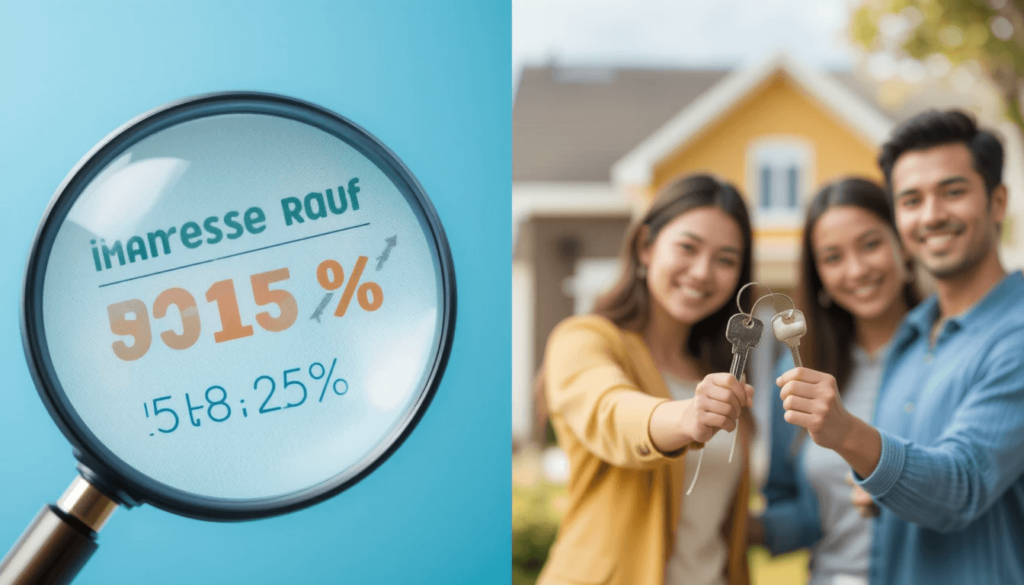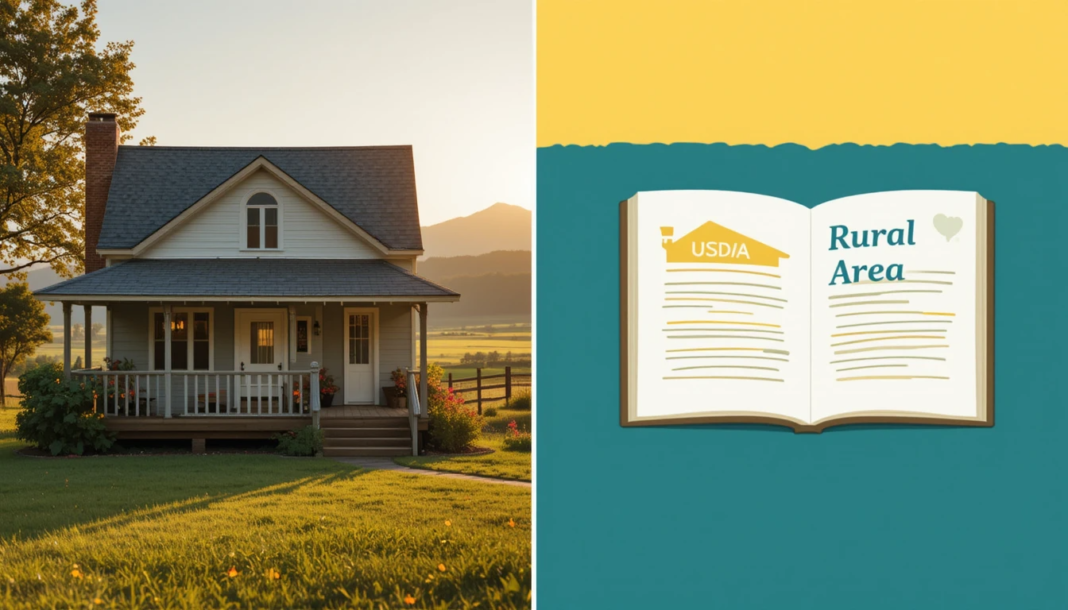I swear, thinking about today’s Housing loan rates can feel like trying to solve a Rubik’s Cube blindfolded while someone yells economic indicators at you. One minute they’re low, the next they’re high, then they’re doing this weird little dance. Remember that time in, like, 2021 when rates were so ridiculously low you felt like you were stealing? Man, those were the days. I nearly fell off my chair when I saw how cheap money was then. Now? It’s a different vibe, for sure.
I’ve been rambling on this blog for a good long while now, and if there’s one topic that consistently makes people’s eyeballs pop out (in a good way, usually, because I try to make it relatable), it’s anything to do with housing and money. Because let’s face it, we all want a roof over our heads, and we all want to not feel like we’re being financially suffocated by it. So, let’s peel back the layers on mortgage rates without making your head spin, okay? Grab a coffee, or something stronger, because this is going to be a real-talk session.

Housing loan rates: Where Are We Even At? (And Why Does It Feel Like a Rollercoaster?)
So, what are today’s Housing loan rates looking like right now, as of early June 2025? Well, for the ever-popular 30-year fixed-rate mortgage, we’re hovering around the high 6s to low 7s, give or take. The 15-year fixed is a bit lower, usually in the high 5s to low 6s. And ARMs (Adjustable-Rate Mortgages)? They’re all over the place, but often start lower.
Now, if you’ve been paying attention for more than, say, three years, you’re probably thinking, “Wait, what?! Those are kinda high, aren’t they?” And yeah, compared to the ridiculously low rates we saw during the pandemic (remember sub-3%? Wild times!), they definitely are. But if you zoom out a bit – like, way out to the 70s or 80s – we’re still not in historically insane territory. My parents paid like, double digits for their first mortgage. Can you even imagine? My jaw literally drops every time they tell that story.
Why the Fluctuation? The Wizard Behind the Curtain (Sort Of)
You ever wonder why these rates bounce around like a rubber chicken in a dryer? It’s not just some random number generator, I promise. There are a few big players pulling the strings, or at least influencing them in Housing loan rates:
- The Federal Reserve (The “Fed”): This is probably the biggest influencer. While the Fed doesn’t directly set mortgage rates, their actions (like raising or lowering the federal funds rate) have a huge ripple effect. When they raise rates to fight inflation (which they’ve been doing), borrowing money generally gets more expensive across the board, including mortgages. It’s like when your mom says, “No dessert until you finish your veggies!” — it affects everything else.
- Inflation: This is the big monster everyone’s been talking about. When inflation is high, lenders want a higher return on their money to compensate for the fact that the money they lend you today will be worth less tomorrow. So, rates go up.
- The Economy (Duh): A strong economy often means higher rates because there’s more demand for money. A weaker economy can sometimes lead to lower rates as the Fed tries to stimulate things. It’s a delicate dance, like trying to juggle eggs and a chainsaw.
- The Bond Market: This one’s a bit more technical, but mortgage rates often track the yield on the 10-year Treasury bond. When those yields go up, mortgage rates usually follow. It’s Housing loan rates like if your favorite band releases a new album, and suddenly everyone else tries to sound like them.
Fixed vs. Adjustable: Picking Your Mortgage Battle
Alright, so you know the rates are doing their thing. Now, which type of mortgage should you even consider? This is where your personal risk tolerance (and how much you like surprises) comes into play.
The 30-Year Fixed-Rate Mortgage: Your Steady Eddy
- What it is: This is the classic. Your interest rate is locked in for the entire 30 years of the loan. Your principal and interest payment stays the same every single month. Forever. (Well, for 30 years.)
- Why it’s good (especially now): Stability, my friend, stability! In a world where interest rates are a bit jumpy, knowing exactly what you’ll pay each month is a huge comfort. It’s like having a reliable old sweater – maybe not the most fashionable, but it keeps you warm.
- The Downside: Typically, the interest rate on a 30-year fixed is higher than a shorter-term loan or an ARM’s initial rate. You’re paying for that security. And if rates drop significantly, you might feel a pang of regret (but hey, you can always refinance!).
- My Take: If I were buying today and planning to stay put for a long time, I’d lean heavily toward a fixed rate. I like knowing what my bills are going to be. Surprises are fun for birthday parties, not for my mortgage statement in Housing loan rates.
The 15-Year Fixed-Rate Mortgage: The Sprint to Freedom
- What it is: Same as the 30-year, but you pay it off in half the time.
- Why it’s good: Lower interest rate (usually!), and you pay way less interest over the life of the loan. You’ll be debt-free much faster. It’s like getting your driver’s license at 16 instead of waiting until 18.
- The Downside: Higher monthly payments. Like, noticeably higher. You have to be super comfortable with that bigger monthly outlay.
- Ideal for: Folks with stable, higher incomes who want to crush their mortgage debt faster.
Adjustable-Rate Mortgages (ARMs): The Wildcard
- What it is: These loans start with a fixed interest rate for a period (e.g., 5, 7, or 10 years), and then the rate adjusts periodically (usually annually) based on a market index. So, a “5/1 ARM” means fixed for 5 years, then adjusts every 1 year.
- Why it can be good: The initial fixed rate on an ARM is often lower than a 30-year fixed. If you know you’ll move or refinance before the fixed period ends, you could save money.
- The Downside: This is where the “wildcard” comes in. Once that fixed period is over, your rate (and monthly payment) could go up, a lot. There are usually caps on how much it can adjust, but those caps can still mean a big jump. Remember 2008? A lot of people got burned by ARMs they couldn’t afford once rates adjusted.
- My Take: ARMs give me anxiety. Unless I had a crystal ball (which, last I checked, is still broken), I wouldn’t touch one unless I was absolutely certain I’d be out of that house before the adjustment period. And even then, I’d probably still sweat. But, hey, some people love the risk, and it can save you money if the stars align.
- When it’s great: If you’re buying a starter home and know you’ll upgrade in a few years, or if you’re planning a massive cash infusion (like a bonus or inheritance) to pay it down before the adjustment.
Beyond the Rate: Hidden Fees and What to Watch Out For
Okay, so the interest rate is a huge piece of the pie, but it’s not the whole pie. There are other things that can sneak up on you and make your overall cost higher than you anticipated.
APR vs. Interest Rate: Don’t Get Fooled!
- The Interest Rate: This is the percentage of your loan that the lender charges you for borrowing the money. Simple.
- The APR (Annual Percentage Rate): This is the total cost of the loan, expressed as an annual percentage. It includes the interest rate plus other costs like origination fees, discount points, mortgage insurance, etc.
- Why it matters: Always, always, ALWAYS compare APRs, not just interest rates. A lender might offer a slightly lower interest rate but pile on a bunch of fees that make the overall APR higher. It’s like buying a “cheap” pair of shoes that fall apart after a week – not really cheap in the long run, right?
Closing Costs: The Surprise Party (That No One Wants)
- What they are: These are all the fees associated with getting your mortgage and closing on your home. We’re talking appraisal fees, attorney fees, title insurance, recording fees, underwriting fees… the list goes on.
- Why they’re a headache: They can easily be 2-5% of your loan amount, and you pay them upfront. That’s a huge chunk of change you need to have saved on top of your down payment. I remember the shock when I saw my closing costs statement for the first time. I thought it was a typo!
- My tip: Ask your lender for a detailed breakdown of all closing costs early in the process. And don’t be afraid to shop around for these too! Some lenders might be more flexible or have lower fees than others.
When to Act: Should You Buy Now or Wait? (The Million-Dollar Question)
This is the question everyone asks, and honestly, if I had a definitive answer, I’d be chilling on a private island somewhere, not writing this blog post.
- The “Wait for Rates to Drop” Argument: If rates do drop, your monthly payment will be lower, and you’ll save a ton over the life of the loan. This is appealing, especially when rates are higher.
- The “Rates Might Go Higher” Argument: On the flip side, what if rates go up even more? Then you’ll regret waiting. The housing market is also a factor – if you wait for rates to drop, home prices might have gone up even more, offsetting any interest rate savings. It’s a real Catch-22, like when you’re waiting for your favorite show to drop all episodes at once, but then you get spoiled.
- The “Marry the House, Date the Rate” Philosophy: This is something I heard a wise loan officer say once, and it stuck with me. It means if you find the right house in the right location that fits your life and budget now, don’t let the current rate completely deter you. You can always refinance later if rates drop significantly.
- My Take: The best time to buy is when you’re ready. Financially, emotionally, logistically. Don’t try to time the market perfectly, because no one can. If you can afford the payments at today’s home loan interest rates and you find a place you love, go for it. If rates drop significantly in a few years, great! You can refinance. If they stay the same or go up, at least you got in when you could.

When to Act: Should You Buy Now or Wait? Housing loan rates
This is the question everyone asks, and honestly, if I had a definitive answer, I’d be chilling on a private island somewhere, not writing this blog post.
- The “Wait for Rates to Drop” Argument: If rates do drop, your monthly payment will be lower, and you’ll save a ton over the life of the loan. This is appealing, especially when rates are higher.
- The “Rates Might Go Higher” Argument: On the flip side, what if rates go up even more? Then you’ll regret waiting. The housing market is also a factor – if you wait for rates to drop, home prices might have gone up even more, offsetting any interest rate savings. It’s a real Catch-22, like when you’re waiting for your favorite show to drop all episodes at once, but then you get spoiled.
- The “Marry the House, Date the Rate” Philosophy: This is something I heard a wise loan officer say once, and it stuck with me. It means if you find the right house in the right location that fits your life and budget now, don’t let the current rate completely deter you. You can always refinance later if rates drop significantly.
- My Take: The best time to buy is when you’re ready. Financially, emotionally, logistically. Don’t try to time the market perfectly, because no one can. If you can afford the payments at today’s home loan interest rates and you find a place you love, go for it. If rates drop significantly in a few years, great! You can refinance. If they stay the same or go up, at least you got in when you could.
A Few Parting Thoughts (and a Reminder to Breathe)
Navigating today’s home loan interest rates and the whole mortgage process can feel like a gauntlet. But remember, millions of people do it successfully every year.
- Shop Around, Seriously: Don’t just go with the first lender you talk to. Get quotes from at least three different lenders (banks, credit unions, online lenders, mortgage brokers). Their rates and fees can vary wildly! It’s like finding the perfect pair of jeans – you gotta try on a bunch before you find the ones.
- Boost Your Credit Score: This is huge. A higher credit score almost always translates to a lower interest rate. Pay your bills on time, keep your credit utilization low, and don’t open a bunch of new credit accounts right before applying for a mortgage.
- Consider a Mortgage Broker: These folks work with multiple lenders and can often find you better deals than you could find on your own. They get paid by the lender, but always ask about their fees and how they’re compensated.
- Ask All the Questions: There’s no such thing as a dumb question when it comes to your biggest financial decision. If you don’t understand something, ask until you do. Seriously, be that annoying friend. I am!
The housing market and interest rates are always moving targets. It’s part of the messy, unpredictable, sometimes exhilarating, sometimes frustrating dance of life. But with a little knowledge and a lot of patience, you can absolutely find your way home.
Have you bought a house recently? What was your experience with interest rates? Any wild stories or crucial tips? Share ‘em in the comments below! We’re all in this wild ride together.
Cheers to homeownership (and not letting interest rates give you an ulcer)!
Outbound Links:
A good simple explanation of APR vs. Interest Rate (Because the CFPB actually tries to make things understandable!)
Check out NerdWallet’s daily mortgage rates for a quick snapshot (They have a pretty clear breakdown without too much fluff!)





